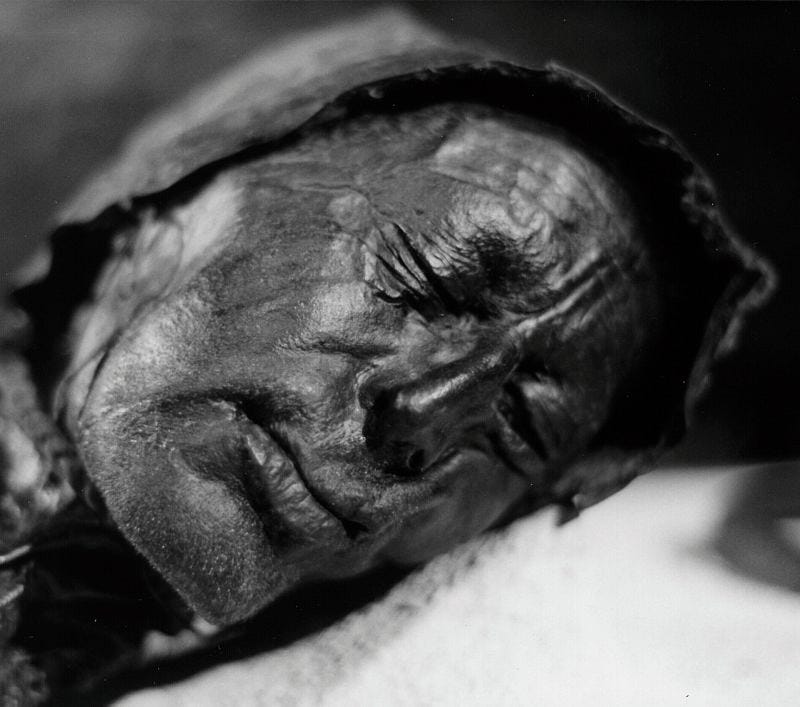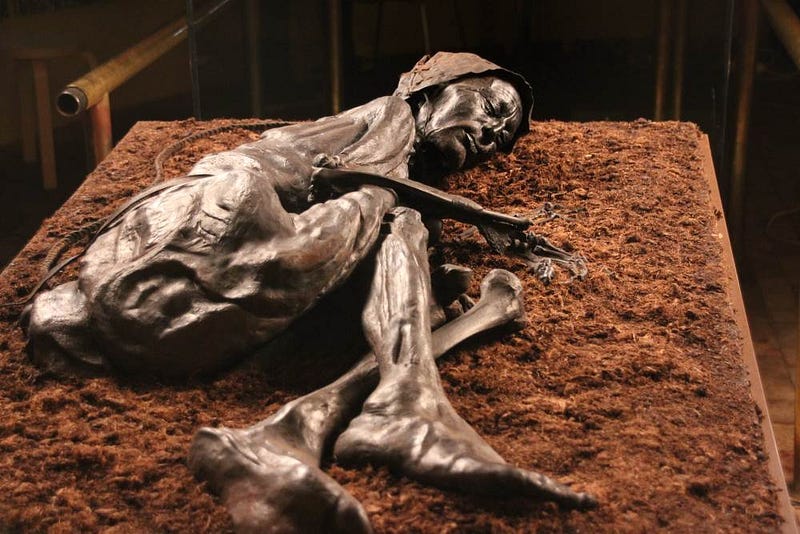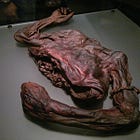The Tollund Man's Last Supper
The cause of death and final meal of a mysterious bog body from Denmark

Viggo and Emil Hojgaard, two peat cutters from Denmark, discovered a body near the town of Silkeborg on May 8, 1950. The body appeared to be that of a recent murder victim. They promptly notified authorities about the corpse.
The police were intrigued by the discovery, but they were convinced it was not a recent homicide. They contacted archaeologists to solve the crime.
The body was that of a man, and it was buried 2.5 meters beneath the ground. He was a red-haired man curled up in the fetal position. He was wearing a sheepskin cap on his head and a noose around his neck.
The Silkeborg Museum’s officials began an investigation into the body. Was it the story of a long-dead murder victim? Or was it a public execution?
As the investigators dug deeper and began studying the corpse, questions rushed through their heads. They concluded that the body was at least 2400 years old. They nicknamed him the Tollund Man.
Who was this enigmatic person, and why was he killed?
Let us find out.
Reminder: By choosing a paid membership (just $5 a month or $50 annually), you're helping amplify voices that history books too often overlook. Your support means these stories get the attention they deserve.
You’ll gain access to tons of members-only content👇
Full-length deep dives into untold stories, like this one: no paywalls, no cuts.
The entire archive of extraordinary tales from the Ice Age to the Fall of the Mongol Empire, the hottest archaeological finds, and the appetizing history of food.
Early access to special editions, be the first to dive in.
Join lively discussions in members-only posts and subscriber chats (there’s one at the end of the post!)
Who was the Tollund Man?

The Tollund Man was a bog body, one of many believed to be victims of ritual sacrifices during the early Iron Age in Europe. Last year, I explored some of the well-known bog bodies of Northern Europe, which provide insights about who they were and why they were executed brutally.
After the Tollund Man’s body was discovered, the Danish media dubbed him “the man from Bogville.” Professor P. V. Glob, a renowned archaeologist, was asked to examine the body. The researcher proposed the name Tollund Man, since the body’s finders, Viggo and Emil Hojgaard, were from the village of Tollund.
The Tollund Man initially appeared as a murder victim. The bog body had wisdom teeth, which helped forensic examiners determine that he was an adult. His wrinkles were astonishingly well preserved on his face. The experts also examined his cranial adhesions and the development of arthritis in his sternum, concluding that he was 30–40 years old at the time of his death. His height was 161 cm, which was average at the time.
Radiocarbon dating tells us about the society to which he belonged.
Keep reading with a 7-day free trial
Subscribe to Forgotten Footprints to keep reading this post and get 7 days of free access to the full post archives.


